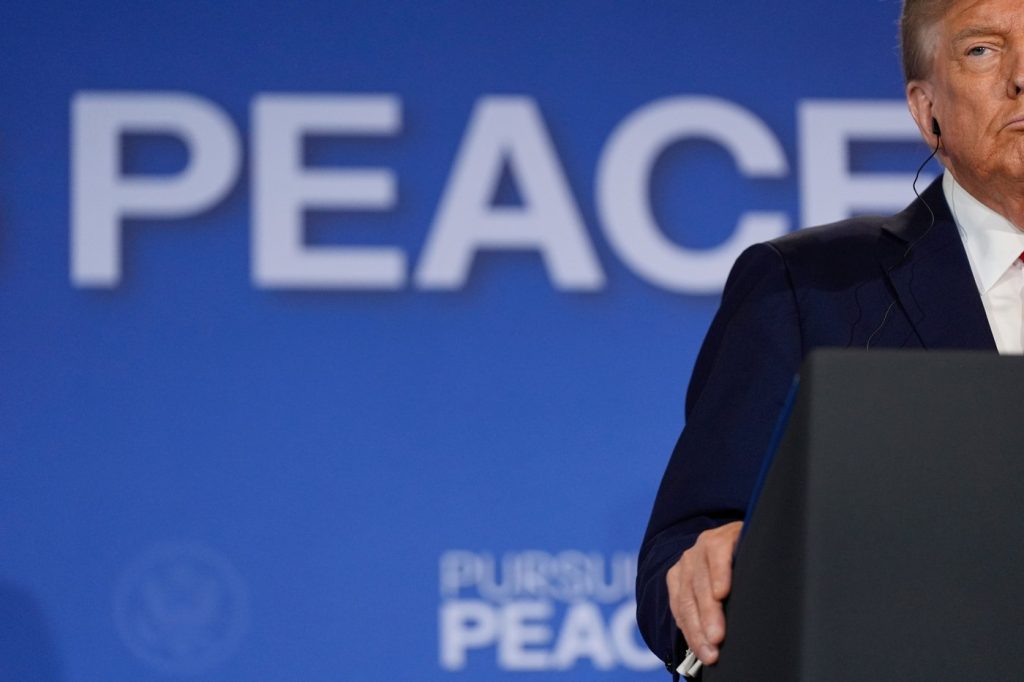STAVANGER, Norway (AP) – U.S. President Donald Trump’s pursuit of the Nobel Peace Prize has hastened discussions surrounding the potential next laureate for the prestigious award. Despite numerous high-profile nominations and foreign policy initiatives attributed to him, experts in Nobel Peace Prize analysis contend that Trump’s prospects for winning the award remain unlikely.
The Norwegian Nobel Committee traditionally emphasizes the significance of lasting peace, the promotion of international fraternity, and the unrecognized work of institutions that reinforce these objectives. Analysts argue that Trump’s history, which includes a apparent disregard for multilateral agreements and global climate change concerns, could undermine his chances for recognition by the Committee.
Since his first term, Trump has consistently highlighted his desire for the Nobel spotlight, recently claiming it to United Nations delegates, stating, “Everyone says that I should get the Nobel Peace Prize.” Notably, self-nominations are disallowed, and his name has repeatedly emerged as a favorite among bookmakers despite the private nature of the Committee's discussions.
Since 2018, Trump has been nominated several times by individuals in the U.S. and international politicians. Most recently, U.S. Rep. Claudia Tenney (R-NY) put his name forward for his role in brokering the Abraham Accords, which normalized relations between Israel and several Arab nations in 2020. However, nominations made in 2023 by Israeli Prime Minister Benjamin Netanyahu and officials from Pakistan arrived after the February 1 deadline for the 2025 award, further complicating Trump's potential bid.
Moreover, Trump has often asserted that he “deserves” the Nobel Prize and claimed to have “ended seven wars." He recently suggested the possibility of concluding an eighth conflict, referencing a peace plan he proposed aimed at resolving the ongoing war in Gaza. Following developments in the conflict, families of hostages gathered in Tel Aviv, chanting “Nobel prize to Trump,” highlighting the belief among some of his supporters in his peacemaking abilities.
Despite the backing from certain factions, veterans of the Nobel Prize process note that the Committee typically prioritizes sustained, multilateral diplomatic efforts over quick resolutions. Historian Theo Zenou emphasized the distinction between halting hostilities and addressing the foundational issues that give rise to conflicts, pointing out that Trump's strategies have yet to demonstrate enduring success.
Additionally, Zenou expressed concern that Trump’s views on climate change are misaligned with the prevailing perspectives held by many, including those within the Nobel committee, regarding it as a significant long-term challenge to global peace. He stated, “I don’t think they would award the most prestigious prize in the world to someone who does not believe in climate change.” Previous winners of the prize have exemplified collaboration, international cooperation, and reconciliation—values not typically associated with Trump.
The Nobel Committee faces pressure to avoid similar backlashes experienced in 2009 when former U.S. President Barack Obama received the prize shortly after taking office, a move that stirred debate about its appropriateness. Trump's vocal aspirations for the award may lead the Committee to be hesitant in considering him, as they likely do not wish to appear influenced by electoral pressures.
Nina Græger, director of the Peace Research Institute Oslo, noted that Trump’s chances are “a long shot,” asserting that his rhetoric is not conducive to peaceful resolution. As the Nobel announcements progressed, with categories including medicine, physics, and literature being awarded throughout the week, focus remained on the fundamental criteria the Norwegian Committee uses to determine the recipients of this esteemed honor.











